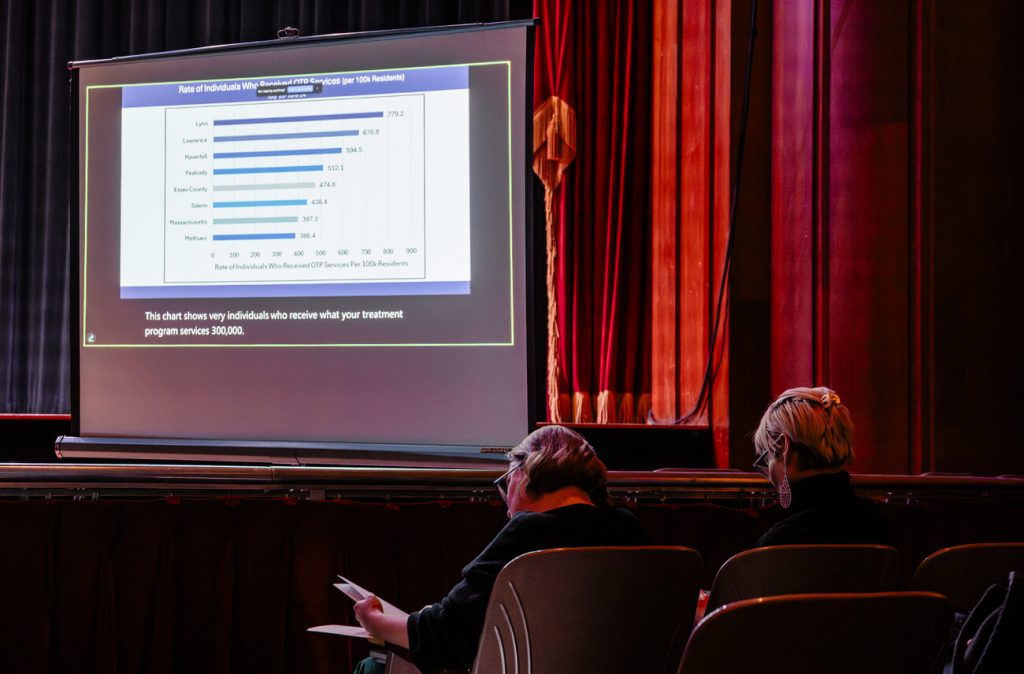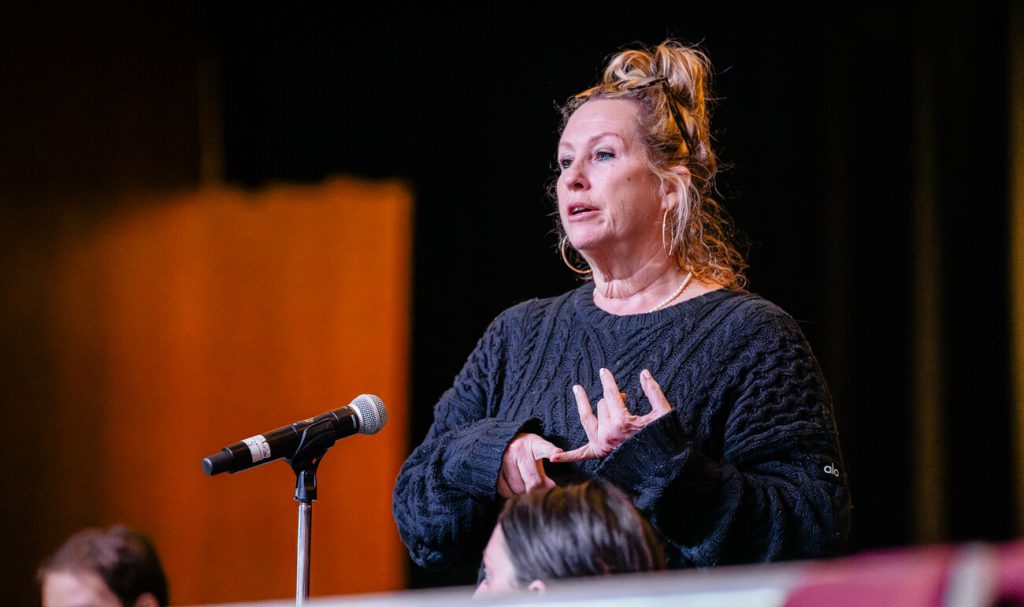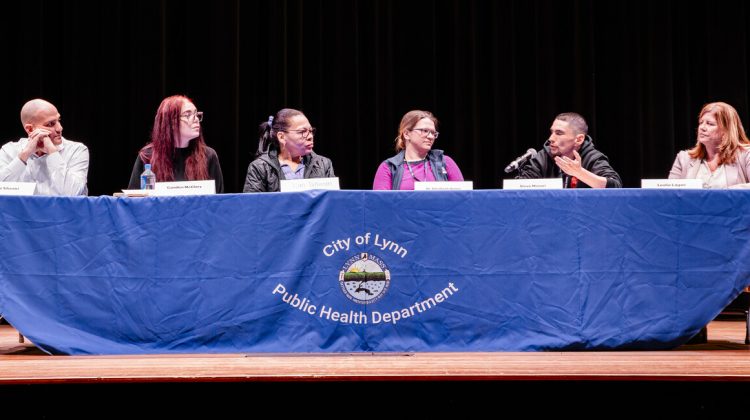LYNN — Massachusetts public health officials gathered in Lynn on Wednesday for a listening session on opioid remediation funds, giving community members a platform to voice their concerns and priorities.
The event was part of a statewide initiative hosted by the Commonwealth of Massachusetts Executive Office of Health & Human Services, the Attorney General’s Office, and the Department of Public Health’s Bureau of Substance Addiction Services.
The funds, the result of litigation against opioid industry companies, are expected to bring in over $1 billion to Massachusetts through 2038 to address the ongoing opioid crisis. Officials emphasized that public feedback will help determine how these resources are allocated.

The event featured a panel discussion with local experts and advocates working in substance use recovery and harm reduction. Panelists included Marc Silvestri of the Executive Office of Veterans Services, Candice McClory, Substance Use Disorder Coordinator for the City of Lynn, Kim Patterson of The Recovery Exchange, Dr. Elizabeth Quinn from the Lynn Community Health Center, Stephen Molinari of Healthy Streets, and Leslie Lagos from The Sun Will Rise Foundation.
Throughout the discussion, panelists stressed the importance of comprehensive wraparound services, harm reduction initiatives, and barrier-free access to treatment.
“You need a place to live, mental health support, and career education,” said Silvestri. “With all these together, recovery becomes much more achievable.”
Kim Patterson, who has lived experience with addiction and recovery, pointed to a major gap in safe housing for individuals leaving treatment centers or halfway houses. “Without stable housing, people struggle to maintain their recovery,” she said.
Other panelists, including Leslie Lagos, called for more grief support for families who have lost loved ones to overdoses. “Those left behind are often isolated and face stigma,” Lagos said. “We need peer support groups that help people grieve while honoring their loved ones’ lives.”
A significant focus was placed on harm reduction strategies, particularly the potential for supervised consumption sites to prevent overdoses and connect people with resources.
McClory supported the idea, stating, “People are dying so early in their substance use that they never have the chance to recover. A safe space to use and get connected to resources could save lives.”
As Massachusetts determines how to allocate opioid settlement funds, many attendees pushed for investment in harm reduction services, family support programs, and community outreach for marginalized groups.
Mark Silvestri stressed that career and education programs are vital for sustained recovery. “Without one balancing the other, recovery is incredibly difficult,” he said.
Others raised concerns about inequities in opioid crisis response, noting that when opioid addiction primarily impacted Black and Latino communities, it was criminalized — yet now it is treated as a public health issue.
Dr. Elizabeth Quinn advocated for expanding medication-assisted treatment. “We have the medicines to help people, but access remains the challenge,” she said, calling for more distribution through emergency rooms and EMS services.
McClory highlighted the lack of women-specific treatment options, particularly for mothers who fear losing custody if they seek help. “We need equal value in services for women,” she said.
During the public comment period, residents shared deeply personal stories of loss, frustration, and the need for systemic change.
Barrie Brian, a longtime member of Learn to Cope, emphasized the need for family support and education. “Families play a critical role in prevention,” Brian said. “We need more peer-led support groups and better resources for first responders and recovery coaches who meet people where they are.”

Kelley Caron, a Lynn resident whose son Shawn died from fentanyl poisoning, expressed anger over poor AI-generated captions and bad audio on Zoom, which prevented virtual attendees from fully participating. “I had to come down here in person because I couldn’t hear anything,” she said.
Caron also pushed for more financial and legal assistance for grieving families, particularly grandparents who unexpectedly become guardians. “There are a lot of grandparents suddenly raising kids left behind. Even support systems need more support,” she said.
Dr. Fabián Torres-Ardilla, from the Mauricio Gastón Institute for Latino Community Development and Public Policy, called for more outreach to Latino communities, noting that few Spanish-speaking families attended. “These events need to be advertised in Spanish and held at times when working families can actually attend,” he said.
Despite the critical importance of the topic, attendance was low, which many attributed to the event’s midday scheduling (1-5 p.m.). Several attendees noted that people most affected by the opioid crisis — working-class individuals and families — may not have been able to participate due to work or childcare obligations.
In closing remarks, state officials acknowledged the concerns raised and committed to making improvements in future sessions. They encouraged the public to continue providing input through an online survey, which remains open for feedback.
This session was one of six planned across the state, with officials aiming to compile feedback into a final report to guide funding decisions.
For more information about upcoming listening sessions or to submit feedback online, visit the Massachusetts Opioid Recovery and Remediation Fund website.

